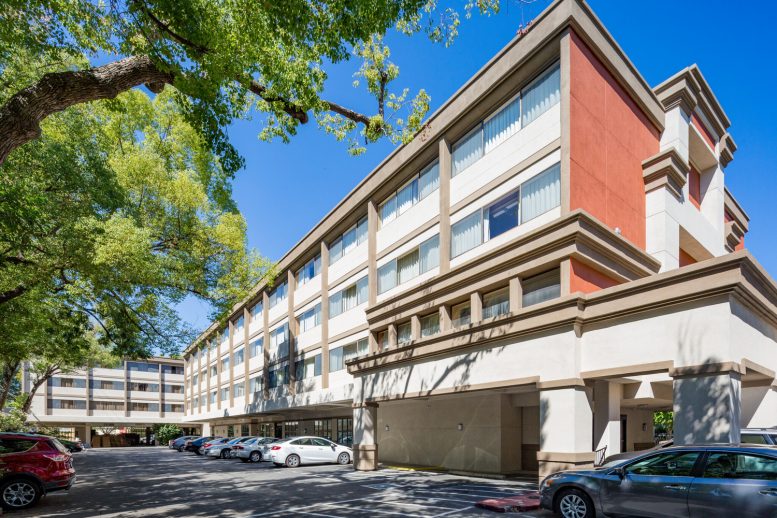THE FWD #232 • 865 words
Converting vacant hotels into affordable homes could be the innovation Virginia needs.
In communities across Virginia, a surprising solution to our housing shortage is hiding in plain sight. Those roadside hotels and motels—some thriving, others struggling—represent untapped potential for creating new affordable housing options that can come online faster and at lower costs than traditional new construction.
The Hotel-to-Housing Opportunity
Virginia localities are already embracing this innovative approach. In Williamsburg, the 2013 conversion of the Hospitality House created over 300 dormitory-style units for William & Mary students, and the conversion of Quarterpath Inn has brought affordable inventory to the area (price point between $725 and $1,125 per month). Meanwhile, Northern Virginia communities like Fairfax, Arlington, and Alexandria are actively exploring or implementing hotel conversions to address their housing needs.
What makes these conversions attractive? For starters, they can be significantly more cost-effective than building from scratch. In California’s Homekey program, converted hotel units cost about $148,000 each—far less than the average for newly constructed affordable units in the state. Let’s dig into how and why this is the case.
Conversion Models That Work
The most successful projects typically fill a unique gap in the housing market of an area, including:
Multifamily Housing: About 60% of hotel conversions nationwide become multifamily developments, according to a 2021 National Association of Realtors survey. These range from market-rate apartments to mixed-income and fully affordable communities.
Supportive Housing: Nearly 12% of conversions provide shelter or permanent supportive housing for people experiencing homelessness. Hotel layouts work particularly well for this purpose, as their auxiliary spaces can accommodate on-site services.
Senior Living: About 11% of conversions serve older adults through senior housing or assisted living facilities. These projects benefit from simplified zoning approvals, as hotel land use designations often closely match those for senior housing.
Making Conversions Work: The Local Government Role
For Virginia localities considering hotel conversions, proactive leadership makes all the difference. Successful local governments take several key steps:
- Site Identification: They scout potential properties, assess infrastructure needs, and determine whether conversions would help meet community housing goals.
- Developer Partnerships: They identify capable developers, draft RFPs when appropriate, and engage community stakeholders early in the process, including community groups and service providers who might have a stake in the hotel’s conversion.
- Zoning Solutions: Fairfax has shown in zoning studies that allowing conversion “by right” (without additional zoning approvals) makes projects more feasible and attractive to developers. Local governments can ease the process for developers by supporting these projects in an administrative capacity.
- Financial Support: They dedicate housing and community development dollars, create locally-sourced funding, and offer tax incentives to make projects viable. This can come in to fill gaps left by other traditional sources, or can match private partners contributions to development.
Extended-Stay for the Win
Not every hotel is a good candidate for conversion, particularly those without private cooking amenities or with smaller room sizes. Extended-stay properties offer the best layout for affordable housing conversions due to their existing kitchen facilities and room configurations that more closely resemble apartments. Historic hotels, meanwhile, can make excellent high-end housing that preserves architectural character while adding modern amenities.
Challenges to Consider
Despite their promise, hotel conversions face obstacles. The specialized expertise required for adaptive reuse initiatives is generally not possessed by conventional housing developers. Furthermore, many properties face location challenges, situated near highways or away from community amenities, and most hotel rooms are designed for single or double occupancy, limiting opportunities to create larger family units.
Above all else, zoning often creates barriers. Numerous hotels encounter substantial obstacles in transitioning to housing because of existing land use regulations. These rules can be so stringent that they necessitate a total overhaul of the property or render the conversion impractical, either from a legal or economic standpoint.
- Rezoning can create frictions through height restrictions, certificate of occupancy requirements, or reduced density and larger minimum square footage for units.
- Zoning regulations can limit the scale (and therefore impact) of conversion projects.
There is also the prevalence of many of these motels acting as de facto long-term shelters, or SRO units (short-term occupancy). SROs are often a way to provide affordable housing for low-income residents, seniors, and people moving out of homelessness. SROs usually provide common-area kitchens and bathrooms in lieu of separate facilities for each unit; however a few units may have individual kitchens and bathrooms. Like month-to-month rental apartments, residents may choose to stay temporarily while finding a new home or reside there permanently. Hotel owners operating SROs see steady profit with low overhead – sometimes disincentivizing them from selling or converting to permanent housing.
Virginia’s Conversion Future
As Virginia communities continue seeking affordable housing solutions, hotel conversions represent a practical strategy that combines adaptive reuse with addressing immediate housing needs. By learning from early adopters like Williamsburg and creating supportive policy environments, localities throughout the Commonwealth can transform underutilized hospitality spaces into quality, affordable homes for Virginians.
For local officials and housing advocates interested in exploring hotel conversions, HousingForward Virginia has developed comprehensive resources on best practices, funding sources, and technical considerations. Reach out to learn how we can support your community’s conversion projects.
